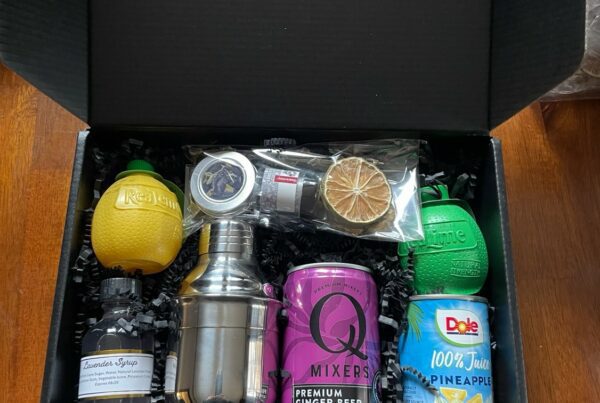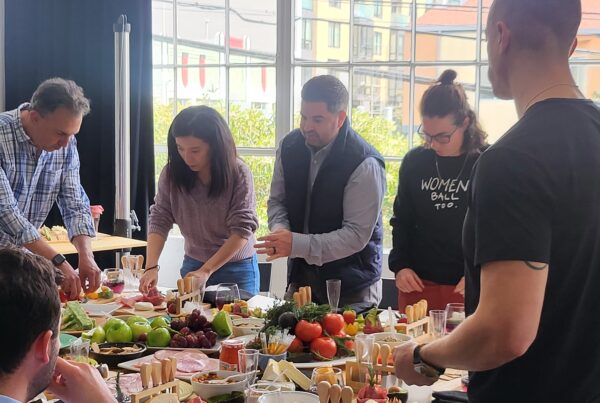There are many cliches about teamwork. ‘There is no ‘I’ in team”, “No dream without the team,” and “TEAM stands for Together Everyone Achieves More.” It’s enough to have your staff rolling their eyes and opening a game of Candy Crush. But cliches or not, teamwork is the driving force of any successful business.
The only reason humanity has achieved so much and enjoys the incredible tech and infrastructure that many of us take for granted has been thanks to humans coming together through the ages, putting their heads together, and collaborating.
Stop, collaborate, and listen!
Humans, by design, come with different viewpoints, ideas, and value systems, so while teamwork and collaboration are essential for growth, it is not always smooth sailing. This is why history is peppered with war and conflict. To ensure their teams reach their potential, proper team development is a learned skill that businesses need to infuse into their company culture.
Over the years, there has been more focus and value placed on collaboration as a teamwork strategy. Teamwork and collaboration have the same purpose – people working together towards a common goal. The key difference is that teamwork combines the group’s efforts, whereas collaboration draws from each team member’s key strengths to complete aspects of a project.
Both have their place and are usually integrated to suit the goal. There has been a dramatic shift in the corporate world – particularly since the pandemic – where collaboration is seen to value each team member and make them feel that they are a part of the bigger picture. Collaborative teamwork is a perfect mix that creates a dynamic work environment, with everyone driven to succeed.
The Tuckman Model of Team Development
In 1965, behavioral psychologist Bruce Tuckman devised a model that recognized that teams don’t form naturally. Instead, they need time to evolve, mature, and for relationships to establish. His model of the stages of team development has formed the basis for the team development strategies of multiple industries for over 50 years.
According to Tuckman’s model, the five stages of team development are:
- Forming
- Storming
- Norming
- Performing
- Adjourning
According to Tuckman’s theory, these stages of team development follow a natural progression mirrored in human development and positive relationships. Each step is essential for the success of the next, and sometimes early stages need to be revisited to firm the foundations of the team as they work through the process.
Forming
The forming stage is filled with energy and ambition, but the team has not had an opportunity to get comfortable with their group. As a result, many are hyper-aware of making a good impression, and their anxiety levels are high. In this stage, you will observe team members on their ‘best behavior,’ avoiding conflict, being incredibly polite, and internalizing their feelings of apprehension and uncertainty.
At this stage of team development, each team member is not yet seeing the bigger picture but is still seeing their role from their own perspective. Therefore, good leadership is essential in this stage, as it is a time for group discussions about the team’s purpose and to lay out some ground rules outlining expectations and objectives.
This is a great time to implement some early team-building ice breakers to allow team members to get more comfortable with each other. This can be a challenge for teams who are working remotely – traditional ice-breaking activities have had to evolve into a virtual realm.
The team at Rockoly are experts in remote team building and has something to offer through each of the stages of team development. With a focus on bonding over ‘breaking bread,’ they host online cooking workshops that will get your team cooking up a storm.
The ‘forming’ stage is the perfect opportunity to host a ‘getting to know you’ event, like a virtual wine tasting.
Here are some other great, quick, remote icebreakers for your team in the forming stage:
Personality Quizzes
There is a range of personality tests online that are designed for ice-breaking and figuring out what makes your colleagues (and you) tick. Choose one that best suits your team, uncovers each other’s quirks and, gains new respect for diversity and what makes us unique.
Five Finger Showdown
This straightforward ice breaker requires very little preparation and is a perfect tool to get people talking.
Each team member holds up an open hand, and the host list some unusual bucket-list type experiences – for example, ‘has eaten frogs’ legs’ or ‘has climbed a mountain.’ Then, if a participant has done the activity, they put a finger down.
The winner is the one who has put the most fingers at the end of the game!
Name the States
Regardless of your general knowledge of geography skills, it is a different story when there is a bit of pressure. This game can focus on the United States or anywhere in the world – so you can pick one that suits your team dynamic.
Some options available online include a site where players must list the US states within a set time. You can add to the challenge by seeing if they can also name the capital city. Some online games and apps make it even more challenging and choose only the outline of a state or a map of the US, and the names have to be placed in the correct location.
Pin The Map
Suppose you have a diverse team from a variety of cultural and geographical backgrounds. In that case, Pin the Map’ is a great tool designed to create awareness and understanding of each person’s location. In addition, it acts as a springboard for opening discussions about each person’s background and culture.
Use an interactive map and let each team member place a photo of where they were born and where they currently live. It’s a great ice breaker, and the team can learn much about each other.
Speed Interviews
This team-building spin on the speed dating method is a fantastic icebreaker. It works both face-to-face and in a remote setting.
Each person is paired with another team member and is armed with a list of 3 questions (if you are working remotely, use a breakout room). They ask their partner the three questions and are then asked three (different from the ones they have)
After five minutes, their breakout room is dissolved participants are placed with a new partner.
Each member keeps their three questions that they ask their new partner again, but their questioner will not have the same questions as the previous ‘roommate.’ It takes some planning on the facilitator’s side, but this easy guide will get you there in five minutes.
Check out our blog if you are looking for more great icebreakers!
Storming
This is the only one of the stages of development where the wheels fall off – temporarily. Good manners go out the door, the gloves come off, and team members start to push their own agendas, clash over personality and value differences, become frustrated with others’ work ethic and try to establish their place in the pecking order.
It sounds like a disaster but is completely necessary and a tool for management to identify areas of weakness and conflict and deal with them head-on to soothe the road ahead. Team-building is critical during this stage and should focus on building inter and intrapersonal relationships, facilitating conflict resolution, effective listening, and re-establishing roles and ground rules.
Here are some great activities for this stage of development that foster communication, active listening, and empathy:
Pancakes vs. Waffles
This activity is designed to encourage problem-solving, collaboration, and decision-making. The activity can easily be renamed anything that involves an ‘either/or’ – burgers vs. pizza, cats vs. dogs– it’s entirely up to you.
The team must choose from the two options and decide which will stay and which will disappear from the face of the earth. Then, each person has an opportunity to advocate their choice, list advantages, and disadvantages, and consider each other’s opinions. They will then hold a vote to make a final decision.
Once the decision is made, the remaining item is paired with a new competitor, and the process starts again. So, if pancakes won the first round, they now need to decide between pancakes and chocolate cake, chocolate cake vs. candy bars, etc.
The more items are eliminated, the more challenging it becomes – and more brainstorming and communication are required.
Tradition or Not?
There are many crazy family traditions around the world, from boot throwing in Finland to the Japanese Christmas tradition of Kentucky Fried Chicken. It can be tricky to differentiate between what is real and what is not.
“Tradition or Not’ is an opportunity to get the team scratching their heads and allows them to get to know each other’s thinking process and background. They all create a list of their own unique cultural or family traditions as well as weird and wonderful ones from around the world – with a completely fake one thrown into the mix. Teams must guess which ones belong to which teammate, which are from afar, and which are non-existent.
The Deserted Island Scenario
This quick activity is perfect for small groups. The team is given the scenario – they are stranded on a deserted island but get to design a survival kit to help them. Provide a list of objects – not obviously aimed at survival – to stimulate some creative thinking.
- Some ideas include:
- 100-proof alcohol
- A lantern
- A bucket
- A Swiss Army knife
- Matches
- Rope and string
- Protein bars
- A magnifying glass
- Twine
- Etc etc.…
Each person selects three items from the list and shares their choices with the team. They need to give reasons for their choices and listen to each other reasoning.
Hearing each other’s opinions and perspectives will offer insight into each person’s thought process and stimulates collaboration.
Norming
And then there was peace! Norming is the stage of development where the team settles down, iron out their differences, and begins to recognize and appreciate each other’s strengths. The ice is broken, and people are more open to feedback, constructive criticism, and asking for input.
The team is all set to work towards a common goal. Management can take a small step back and encourage more team interaction, shared leadership, and collaboration.
This is the stage of team development where your team can enjoy team-building activities designed for fun, active participation, and some healthy competition.
Consider an online cooking workshop if you are looking for a fun, relaxing activity where your team can develop excellent soft skills without even realizing it. Rockoly offers various menus that can be customized to suit your group.
A virtual chef will guide your team, and to ensure as little effort as possible, all ingredients are delivered to your team’s door, so they can participate virtually in the comfort of their own kitchen.
Read here to discover why cooking workshops beat all other online team-building strategies.
Performing
This is the most satisfying and productive of the five stages of team development. Your team collaborates at an optimum level and has developed a well-structured process where everyone is involved and recognized for their input.
Roles are clearly defined, and the team can work independently and thoroughly understand each other’s strengths and weaknesses. The team’s commitment to each other and their shared goals is palpable and tight bonds are formed.
According to MIT’s Judith Stein, “Roles on the team may have become more fluid, with members taking on various roles and responsibilities as needed. Differences among members are appreciated and used to enhance the team’s performance.”
It is a time for a reward, fun, and positive feedback. Once again, many team-building activities are designed for this stage of development.
Looking for an exciting way to celebrate the performance stage of team development?
How about a virtual happy hour?
Again, you need not look further than Rockoly to offer your team the perfect surprise virtual happy hour. Happy Hour is a time-honored tradition threatened by the pandemic, but the creative minds at Rockoly have ensured that it needn’t be the case.
A surprise virtual Happy Hour is a great team-building option to boost morale and celebrate connection. Rockoly’s trained mixologists guide your team through mixology workshops, and cocktail creations, with the ingredients, delivered upfront.
A mixologist is a connoisseur of specialized cocktails and ingredients and will teach your team to mix traditional cocktails, create their own recipes, and keep up with trends and local culture.
Some other fun and simple team-building strategies include:
Animal Resemblance
This is great for communication, healthy debate, and active listening. The team is put into smaller groups, and each group needs to decide which animal they would relate to the team and why.
Each group gives feedback to the larger group, explaining their reasoning. It will be interesting to see if there is any overlap.
Dog, Rice, and Chicken
It’s an oldie, but a goodie. This logical thinking exercise has been around for ages, but it is a great way to stimulate ‘out-of-the-box’ thinking.
A team member acts as a farmer, and the rest act as villagers.
The scenario is as follows: The farmer has a bag of rice. He also has a chicken and a dog. With all three, the farmer wants to return home, but he must cross a river. The problem is that he can only take one of his possessions at a time and must make return trips.
He knows that if he leaves the dog with the chicken, the chicken will be eaten. And if he leaves the chicken with the bag of rice, the rice faces a similar fate.
The team needs to brainstorm and problem-solve to figure out how the farmer can return home with these three remaining safe and sound items.
Adjourning
The adjourning stage is a bittersweet time and is when the team realizes that all good things must come to an end. The rush and satisfaction come with handing over a completed project, finalizing the end bits and pieces, and celebrating success. Still, there is also the knowledge that the team is now at a crossroads, and it is time to go their separate ways.
People become restless, and momentum slows down. And there is a mix of sadness, relief, and humor that those on the outside may not understand. This is a time to reflect on how the team has navigated the five stages of team development, prepare to carry their newfound skills into the next project with a new team and enjoy the downtime together, having some fun.
There are some great virtual team-building activities that are perfect for this stage, with a focus on fun, celebration, and relaxation.
A Rockoly wine tasting workshop will create a relaxed atmosphere with a cheese and wine evening. There are fantastic wine tasting workshops that can be paired with many of their great menu options. Check out their blog to see some other virtual wine tasting party ideas for teams.
Some other great ‘let-your-hair-down’ activities include:
Virtual Trivia
Everyone loves a good round of trivia, even if they won’t admit it. There are excellent apps out there, like Kahoot!, where you can create customized quizzes and games like hangman and crosswords, where the clues line up with things related to the team’s experience, inside jokes, and personality.
A trivia game is also a great way to relax and have fun with minimal effort. There are online versions of traditional game shows like Jeopardy and Family Feud that you can also customize at will.
Whatever you choose, you are in for a great time, challenging each other, discovering more about your team, and having a good laugh.
Virtual Themed Casino Night
Just because the team is in the virtual realm doesn’t mean they can’t enjoy a traditional themed casino night, dressed to the nines, complete with a martini.
Virtual casinos have kept the concept alive by adapting to the remote space. There are various interactive games with live dealers that give an authentic casino atmosphere.
You can reward your team with a virtual card preloaded with a spending limit to keep it responsible and stress-free. Then, raise the stakes by adding prizes for the best dressed, luckiest, and unluckiest team members.
You can even have fun with a conscience and agree to donate all proceeds and winnings to a charity decided upon by the team.
Virtual karaoke night
If you want a good laugh and good clean fun, find a virtual karaoke service online. Then, your team can belt out some cheese favorites and embarrass themselves light-heartedly, mainly because they are now so comfortable with their team.
Teams can sing solo, duet, or as a group, and they can really go the extra mile to elicit a peal of laughter and fellowship. Add a dress-up element to add to the festivities.
Virtual festive talent show
A talent show is a tongue-in-cheek, fun ‘let your hair down’ activity that will have the team in fits of laughter and give them something to talk about for years. The team members can choose their own activity and showcase their talent to the rest of the group.
For example, I bet you didn’t know that the girl who does the graphics can rap better than Snoop Dog? And Joe from HR is an epic ventriloquist? Whether it be stand-up comedy, miming, singing, dancing, or anything that floats their boat – the stage is theirs.
Team development is a complicated process, the five stages of team development are all critical and one would not be possible without the others.
Working the stages of team development into your process is a win-win for employers and employees and the best chance any team has of achieving remarkable success, satisfaction, and the joy of a job well done.
Visit Rockoly to discover some great activities that will help you and your team make the most of each process and find an abundance of articles that outline the benefit of excellent team-building strategies.








